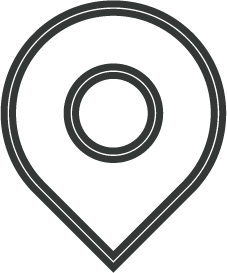Before opening this book, I admit I had a built-in prejudice toward the entire genre of self-help books. I half-expected to see some “practical” tips on time management and prioritizing one’s tasks, along with a few verses from the Bible as general guiding principles of life. It’s not that I disagree with solidly biblically based life-guiding principles. But how does the knowledge that Christ is all you need apply when one is faced with choosing between fulfilling your promise to your boss vs. going to your son’s baseball game so as not to spur a potential psychological depravity in him later in life; or preparing a nourishing meal for one’s family vs. volunteering for the hungry or the marginalized, etc. To bring semblance of order to my life, I needed more than guiding principles and more explicit decoding of Christ’s word that can lead to strategic and tactical-level decisions in my life which would meet the seemingly impossible goal of satisfying all around me. This was a losing war, I thought – even my own specific needs aside – as any attempt by a book to be too prescriptive would invariably fall short in the face of real life.
Contrary to my initial thoughts, however, the book started off with a promise of no quick solution. Instead, there was a recognition – and even appreciation – of our being finite creatures right off the bat. It is not just us either: there are plenty of examples of how Jesus didn’t do everything that he could do, such as how he stopped healing people to go off and rest himself. I personally found this fact quite comforting.
The book raises thought-provoking questions about how to look at priorities. It mentions the famous passage of Martha and Mary (Luke 10:38-42), when Martha complained to Jesus about Mary not helping with much needed service-oriented activities. Because I personally always found this part difficult to fully relate to (but, but… surely one can’t be Mary all the time!), it was interesting to see the author chose this as an example to illustrate the point about perspective. Jesus reminds Martha that she is “anxious and troubled about many things”, raising the question: is this task about validating our need to be recognized as being useful or productive? How many of our tasks are on our priority list to fulfill our pride? Can we actually set aside many distractions to truly prioritize our tasks? Is our pride getting in the way of too many things in which we engage ourselves? And is our pride preventing us from setting aside the many distractions that make us be ultimately more like Martha than Mary?
This book ended up being far more nuanced than I expected, and managed to be both prescriptive enough and roomy enough for self-reflection and self-confrontation. And in doing so, it reinforced the belief for me that the teachings of Christ are truly the beginning of all problem-solving in life. Knowing into which theoretical framework to fit our various problems is one thing: but to do it and gain a meaningful outcome from this process, we need Christ, “in whom are hidden all the treasures of wisdom and knowledge” (Colossians 2:3).
I recommend the book to anyone who feels overwhelmed by the size or complexity of the load they are carrying right now or to parents (I found the chapter about parenting particularly helpful). Whatever your load is, may the wisdom of Christ be with you to guide you.
~ Sonya Han


